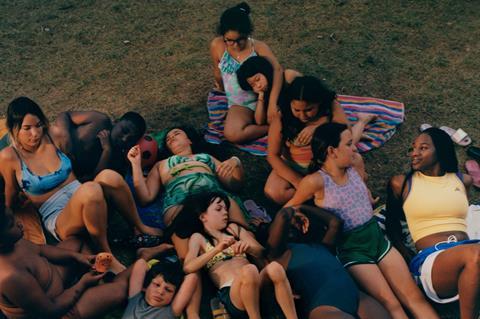
French directing duo Romane Gueret and Lise Akoka burst onto the international stage with their debut feature The Worst Ones (Les Pires) which won the Grand Prix in Cannes Film Festival’s Un Certain Regard in 2022.
They returned to the festival this year with their second film Summer Beats (Ma Frère) playing in Cannes Premiere.
The coming-of-age drama centres on two teenage best friends from a less well-off area of Paris who spend a summer working at a camp in southeastern France with an unruly tribe of young children as they struggle with their own dramas, dreams and desires.
Shirel Nataf and Fanta Kebe star alongside a mostly unknown cast of newcomers and popular French singer-actress Amel Bent. The film is produced by Paris-based Superstructure. Studiocanal is handling international sales and will release the film in France on January 7, 2026.
Former casting directors and acting coaches Gueret and Akoka first met in 2014 when auditioning more than 4,000 non-professional child actors for a project and have since been inseparable behind the screen starting with their 2015 Cesar-nominated short Chasse Royale.
Summer Beats is based on their 2020 Sundance-premiering web series Tu Préfères for Arte that had Nataf and Kebe in the same roles. The filmmakers originally met the actresses when they were eleven years old during a street casting.
Immersive experiences
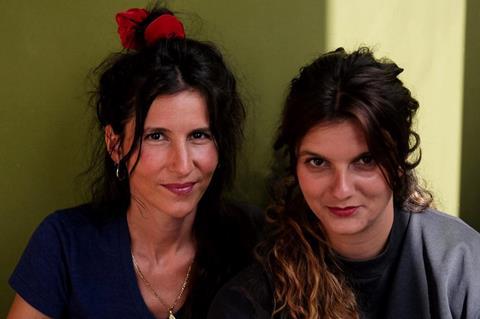
Summer Beats shot in August of 2024 in the Drone region of France. The filmmakers spent a great deal of time preparing the film, both writing as a trio alongside Catherine Paillé, and through what Akoka calls “immersive experiences” like spending time in recreation youth centres and summer camps, even sending the protagonists to a real summer camp as interns for a deep dive into their roles.
The filmmakers along with casting director Marlene Serour auditioned some 1,500 children for around 18 main roles in the ensemble cast.
Throughout the month-long shoot, Gueret says, “We created a real summer camp for the children so their parents didn’t have to come back and forth to set. Some had never been apart from their parents before.”
“The biggest challenge was having so many young children on set at the same time. In The Worst Ones, we had maybe 20 kids maximum at a time,” Akoka says.
Gueret adds: “It demanded a high level of energy to handle all of their energy.” The children range in age from 6-12 years old.
The film blends several genres including teen movie, summer camp story, coming-of-age drama, and comedy, but is also a social drama that tackles tough topics.
“We like the fact that the film doesn’t fit into one box, that it can fluctuate between comedy, drama and social issues and that it has a documentary feel even though it is total fiction,” Akoka explains.
Sunny setting
Bringing the characters outside of an urban setting also provided a brighter contrast to some of the bleaker themes explored. “It was a way for us to shift the usual gaze from the stereotypes surrounding films about characters from underprivileged neighbourhoods usually shot between buildings in the projects. We wanted to bring them someplace else, to a sunny setting,” she suggests.
Akoka adds: “The film addresses several political topics, but it is always done with lightness and humour. We’re not trying to give lessons in morality and we’re not asking audiences to take a side. We just want the film to ask questions.”
Gueret adds: “We are looking at these issues through the eyes of children which is a natural way to remove judgment because children never judge.”
The film is told through the voices of the children and plays with specific nuances in language through the detailed dialogue. While some of the cleverer phrases may be lost in translation, Gueret says, “The subjects in the film are universal. On one hand, it’s a film where children are reinventing language and it is very French, but the political subjects it deals with affect the entire world. It’s an ode to learning to live together.”
The French title of the film – Ma Frère – is a play on words and nod to the expression “mon frère”, the equivalent of “bro.” By putting a grammatically incorrect feminine “ma” in front of it, Akoka explains, “We are turning the term on its head by changing its gender which reflects our lead characters who are girls taking their power back and referring to their strong female friendship that is at the core of the film.”
While the filmmakers are still discussing ideas for their next feature, they confirm it will be done as a duo and also focus on children and young adults.
“We’re very complementary and the more we create and the more we direct, like adding brick after brick, we build upon our relationship and hone our craft. We’ve been working together now for a decade and I think with each project, the collaboration gets better and better. We honestly don’t understand how filmmakers can do it alone,” Gueret says.
Akoka adds: “We’re always in a state of work-in-progress. We can say that we will continue to work with children – breaking news!”




![Benjamin Kramer Headshot Photo Credit_CAA[40][40]](https://d1nslcd7m2225b.cloudfront.net/Pictures/274x183/6/6/4/1455664_benjaminkramerheadshotphotocredit_caa4040_107707.jpeg)
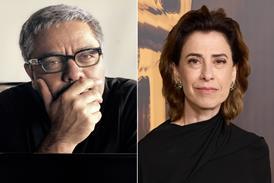

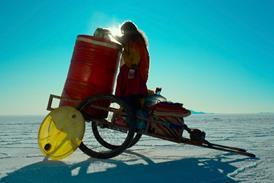




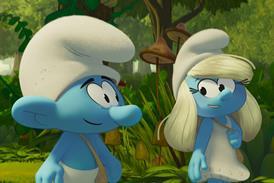

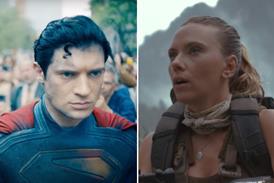










No comments yet